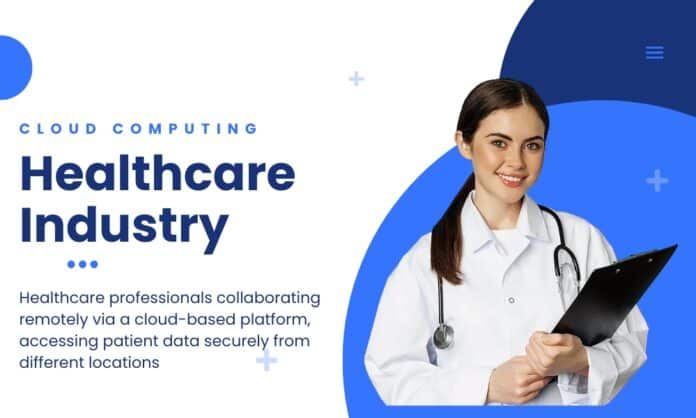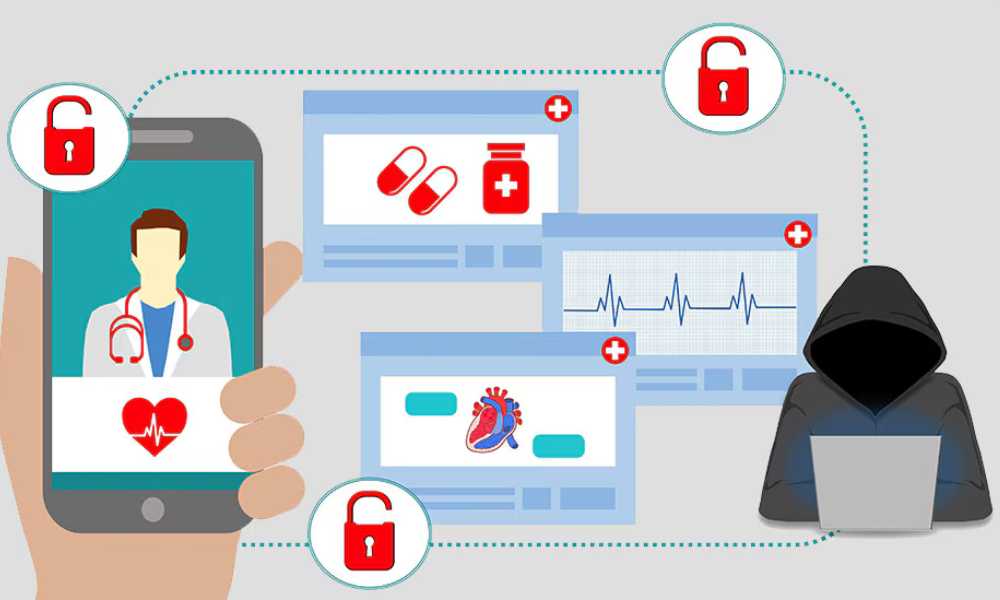Cloud computing has changed the way many industries operate, and healthcare is no exception. With ongoing advancements in technology, cloud computing has become a crucial part of improving healthcare services, enhancing efficiency, and ensuring better patient care. From managing patient data to supporting telemedicine and medical research, cloud technology is shaping how healthcare organizations work. It offers scalable, cost-effective, and secure solutions that meet the specific needs of the healthcare industry. This article will show how cloud computing is benefiting healthcare in several important ways.
The Role of Cloud Computing in Advancing Healthcare
Cloud computing is revolutionizing healthcare by providing powerful tools to help healthcare organizations manage patient data, collaborate better, and offer affordable services. With cloud computing, healthcare professionals can access real-time data, which improves decision-making, reduces inefficiencies, and enhances patient care.
1. Better Data Storage and Management in Healthcare
Healthcare deals with an enormous amount of data every day, including electronic health records (EHRs), medical images, and lab results. Managing this data efficiently is vital for ensuring quality care and meeting regulations. Traditional data storage methods can be costly, inefficient, and insecure. Cloud computing helps solve these problems by offering scalable, secure, and centralized storage.
How Cloud Computing Improves Data Management:
- Centralized Data Storage: Cloud computing lets healthcare providers store all patient information in one location that’s easy to access by authorized personnel.
- Scalability: As healthcare data grows, cloud storage can expand to meet the increasing volume.
- Real-Time Access: Medical professionals can view up-to-date patient data from anywhere, making care more effective.
- Disaster Recovery: Cloud services often include automatic backups and recovery solutions to protect against data loss from cyberattacks or system failures.
By using cloud computing for data management, healthcare organizations can streamline operations, improve care coordination, and reduce the risk of data loss or breaches.
2. Improved Collaboration and Communication in Healthcare
Cloud computing boosts teamwork and communication among healthcare providers. This is crucial for delivering quality patient care, especially when medical professionals work in different locations or specialties. With cloud-based systems, healthcare teams can securely share patient data in real time, no matter where they are.
Benefits of Cloud Collaboration in Healthcare:
- Remote Access: Doctors and medical staff can access patient records from anywhere, improving care even in remote areas.
- Faster Communication: Cloud-based tools enable quicker communication between doctors, nurses, and specialists, speeding up decision-making and reducing treatment delays.
- Better Teamwork: Medical teams can collaborate on cases, share treatment plans, and discuss patient care in a timely and secure manner.
- Telemedicine Support: Cloud platforms enable virtual consultations, making healthcare more accessible for patients who can’t visit in person.
Cloud computing ensures that healthcare providers can collaborate more effectively, leading to better patient outcomes and more efficient care.
3. Cost Savings and Operational Efficiency in Healthcare
A key reason the healthcare industry has embraced cloud computing is its potential to reduce costs and improve efficiency. Maintaining traditional on-site IT infrastructure is expensive and requires a lot of resources. Cloud computing offers a more affordable and efficient alternative.
How Cloud Computing Saves Money in Healthcare:
- No Upfront Infrastructure Costs: Healthcare organizations don’t need to invest in expensive physical servers or IT equipment when using cloud services.
- Pay-As-You-Go: Cloud services are subscription-based, meaning healthcare providers only pay for what they use, helping control costs.
- Lower Maintenance Costs: With cloud computing, healthcare organizations don’t need to maintain complex IT systems. The cloud provider handles maintenance, updates, and security.
- Increased Efficiency: Cloud services help automate processes like patient scheduling and billing, allowing staff to focus on patient care instead of administrative tasks.
By eliminating the need for costly infrastructure and reducing operational costs, cloud computing allows healthcare organizations to focus more on improving patient care and clinical operations.
4. Ensuring Data Security and Compliance in Healthcare
Healthcare organizations manage highly sensitive patient data, so security is a top concern. Cloud computing providers use strong security measures to keep data safe and comply with healthcare regulations like HIPAA (Health Insurance Portability and Accountability Act).
How Cloud Computing Ensures Security and Compliance:
- Data Encryption: Cloud services encrypt data during transit and while stored, protecting it from unauthorized access.
- Access Control: Cloud platforms allow healthcare organizations to set strict access controls, ensuring that only authorized staff can view or edit patient data.
- Regulatory Compliance: Top cloud providers make sure their platforms meet healthcare regulations such as HIPAA, guaranteeing that patient data is handled legally.
- Regular Security Audits: Cloud providers perform security audits to find and fix any vulnerabilities, ensuring their systems remain secure.
These security features make cloud computing a safe way for healthcare organizations to store and manage patient data while meeting regulatory requirements.
5. Supporting Telemedicine and Remote Patient Monitoring
Cloud computing has been a key driver in the growth of telemedicine and remote patient monitoring, especially in light of the COVID-19 pandemic. Cloud platforms offer the infrastructure needed for virtual consultations and remote monitoring, allowing healthcare providers to care for patients at home or in remote areas.
How Cloud Computing Supports Telemedicine and Remote Monitoring:
- Virtual Consultations: Healthcare providers can offer video consultations, making healthcare accessible for patients who are unable to travel.
- Remote Health Monitoring: Patients can use wearable devices and health apps to monitor their conditions, with data securely stored and analyzed in the cloud.
- Continuous Care: Cloud platforms allow healthcare providers to collect real-time data on patients, enabling them to monitor chronic conditions and intervene when needed.
- Cost-Effective Care: Telemedicine and remote monitoring reduce the need for in-person visits, saving time and money for both patients and healthcare providers.
Cloud computing makes healthcare more flexible, accessible, and affordable, particularly for patients who live far from medical facilities or those with ongoing health conditions.
5. Enabling AI and Data Analytics in Healthcare
Cloud computing supports artificial intelligence (AI) and data analytics in healthcare. It provides the computational power and storage necessary to run complex algorithms and analyze large datasets.
How Cloud Computing Powers AI and Analytics in Healthcare:
- Data-Driven Insights: Cloud platforms allow healthcare providers to analyze vast amounts of patient data, uncovering patterns that improve diagnostics and predict outcomes.
- AI Diagnostics: AI algorithms, run on cloud platforms, help doctors diagnose diseases, spot health risks, and recommend treatments.
- Personalized Medicine: Cloud-based AI systems can analyze genetic and medical data to create personalized treatment plans for patients.
- Predictive Analytics: Cloud platforms use predictive analytics to forecast disease outbreaks, patient readmissions, and other trends, allowing for proactive healthcare measures.
AI and data analytics, powered by cloud computing, are helping healthcare become more efficient, personalized, and precise.
Conclusion: The Transformative Impact of Cloud Computing in the Healthcare Industry
Cloud computing is revolutionizing the healthcare industry by offering solutions that improve data management, collaboration, cost-efficiency, and patient care. From enhancing security to supporting telemedicine and remote monitoring, the benefits of cloud technology are vast.
As healthcare continues to embrace digital transformation, cloud computing will remain a key factor in shaping the future of healthcare delivery. Although challenges such as data privacy and regulatory compliance still exist, the ongoing development of cloud technologies, combined with AI and IoT, promises an efficient and effective future for healthcare worldwide.
Frequently Asked Questions about the Healthcare Industry
1. How does cloud computing improve healthcare data management?
Cloud computing improves healthcare data management by providing centralized storage. It allows real-time access to patient data from anywhere, making care coordination smoother. It also reduces the risk of data loss with automatic backups and disaster recovery features.
2. Is cloud computing secure for storing sensitive healthcare data?
Yes, cloud computing is secure for storing healthcare data. Top cloud providers use encryption, multi-factor authentication, and other robust security measures to protect sensitive information. These platforms also meet healthcare regulations like HIPAA, ensuring data privacy and security.
3. How can cloud computing facilitate collaboration in healthcare?
Cloud computing helps healthcare teams collaborate by giving them real-time access to patient data. Doctors and specialists can work together across different locations, improving patient care. Cloud platforms also support telemedicine, allowing for remote consultations.
4. What are the cost benefits of adopting cloud computing in healthcare?
Cloud computing helps healthcare organizations save money by eliminating the need for costly on-site infrastructure. The pay-as-you-go model ensures that healthcare providers only pay for what they use. Additionally, it reduces maintenance costs and streamlines administrative tasks.
5. Can cloud computing support telemedicine and remote patient monitoring?
Yes, cloud computing is essential for telemedicine and remote monitoring. It allows healthcare providers to conduct virtual consultations and store data from remote devices securely. This enables continuous care and reduces the need for in-person visits.
6. How does cloud computing support AI and data analytics in healthcare?
Cloud computing enables AI and data analytics by providing the power and storage needed to run complex algorithms. Healthcare providers can analyze large datasets to improve diagnostics, predict health trends, and personalize treatment plans for patients.
7. What are the potential challenges when adopting cloud computing in healthcare?
Adopting cloud computing comes with challenges like ensuring data security, meeting regulatory requirements, and integrating with older systems. Staff may also need training to use cloud tools, and migration costs could be a concern for some healthcare organizations.
8. Is cloud computing suitable for small healthcare organizations?
Yes, cloud computing is ideal for small healthcare organizations. It provides an affordable and flexible solution, allowing small clinics and practices to access advanced technology without significant upfront investment. Cloud services also scale with the organization as it grows.
Check out: Security and Compliance in Healthcare Software Development


